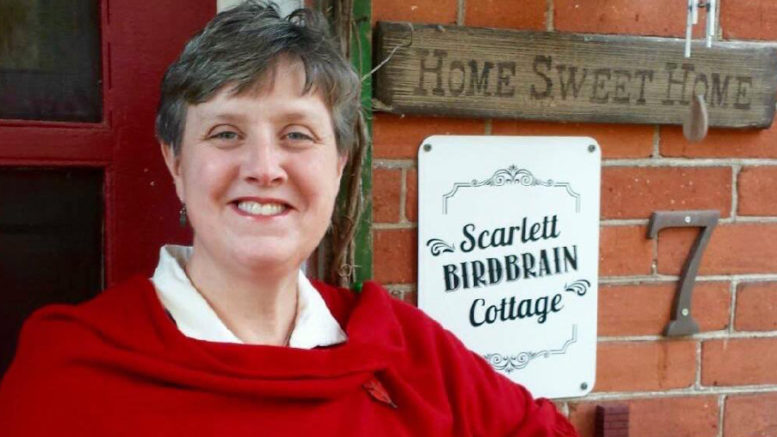Laurie Snider
Notes from the Nest
As I’m enthusiastically banging out my latest discourse for this week’s paper, I’m happily semi-reclined in a Lazy Boy chair, feet propped up, with the heating pad soothing and warming my aching knee.
The Olympics are on as back ground as they have been regularly for the past nine days. At last count we have 19 medals, with many more hopeful opportunities yet to come.
I’m not a huge sports enthusiast but when the Olympics are on, my national pride emerges and I become an ardent fan, zealously supporting our team.
The first Winter Olympics were held in Chamonix, France in 1924. Prior to this figure skating and hockey were included in the Summer Olympics. Canada’s first gold medal in hockey was in 1920, in Antwerp, Belgium as part of the summer games. This was an early precursor to our dominance in this sport. Canada’s second gold medal in hockey was in Chamonix, where they scored an astounding 110 goals in just five games, only allowing three! Outstanding!
The summer and winter Olympics used to occur in the same year up to 1992, when a decision was made to alternate them. Canada is among only 12 countries that have participated in every winter games and only one of six countries that has won at least one medal at each. That’s certainly nothing to sneeze at.
Some 258 athletes, from 16 countries, participated in the first games, competing in events such as bobsled, hockey, skating and skiing events. In today’s Olympics in PyeongChang, 2952 athletes from 92 different countries will be competing in 102 events.
Our best games were the 2010 Olympics in Vancouver where we finished on the top of the heap with the most gold medals ever and the most medals overall with 26. I remember for so many years watching Olympic games and winning only a single medal or two. It’s certainly more enthralling when we have a shot at ascending the podium or are able to hear our national anthem.
It’s so much fun when our entire country comes together to cheer on our competitors. All of us armchair athletes suddenly become familiar with the intricacies of ice dancing twizzles, pair skater’s death spirals, and single skaters, death drops, quads, Lutzes, loops and axels. I always wondered what a Salchow was. Turns out it isn’t a “what” but rather a “who”, named after its originator Ulrich Salchow in 1909. Whew! I finally have peace of mind about that one.
What I love best about the Olympics are the stories about the athletes and how hard they’ve worked to get there, in many cases overcoming tremendous adversities. Who can forget the grit and determination of Elvis Stojko in Nagano, in 1998, skating with the flu and a groin injury yet still pulling off a silver medal performance.
Our whole country wrapped Joannie Rochette in a collective hug as the gutsy gal, skated her heart out in Vancouver. She won the bronze medal in women’s skating after losing her beloved mother two days earlier. A clear demonstration of her skill as a skater but also her strength, courage and remarkable character as a person.
This year’s crop of athletes is also heavily laden with top-notch contenders made of an abundance of mettle and moxie. Spencer O’Brien a female slopestyle snowboarder diagnosed with rheumatoid arthritis right before the Olympics in Sochi and is competing again this year. Denny Morrison a four-time Olympic medalist in speed skating is another fine example of toughness and tenacity. He was badly injured after a motorcycle accident in 2015 and then suffered a stroke in 2016 and is here again as a medal hopeful for Canada.
Then of course there is snowboarder Mark McMorris. Two weeks after breaking a rib in 2014, he won a bronze medal in Sochi. In 2016 he fractured his femur during a snowboard competition. He returned eight months later to win at the big air World Cup. Last March while enjoying back-country snowboarding with friends he hit a tree, sustaining life-threatening injuries, 17 fractures, a collapsed lung and ruptured spleen.
Last week he won another bronze medal and is competing for another later this week. If that isn’t good ole Canadian spunk and pluck then I don’t know what is. In addition to outstanding stamina, guts and fortitude, I love listening to the snowboarders’ vernacular. They use words like gnarly, rad, sick and tearin’ it up. When asked about his upcoming competition he said, “All the good riders are going to be hucking their carcasses around.”
While I do think I once did a triple axel when I tripped over the dog, I’m pretty sure I’ve never hucked my carcass. I believe I’ll continue safely in my sport as an armchair athlete and five-star cheerleader. Go Canada Go!

